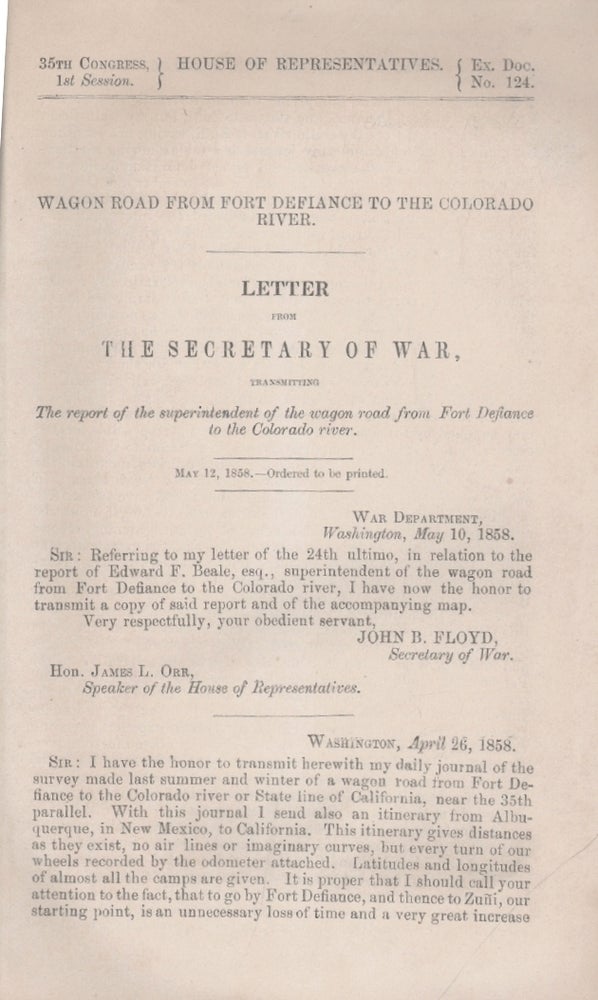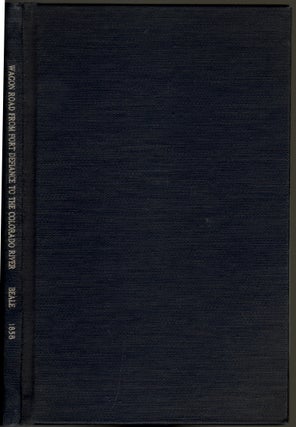Wagon Road from Fort Defiance to the Colorado River. Letter from the Secretary of War Transmitting the Report of the Superintendent of the Wagon Road from Fort Defiance to the Colorado River
[Washington]: 1858.
First Edition. Hardcover. Very good. 35th Congress, 1st Session. House of Representatives Ex. Doc. No. 124. 87 pp, with large folding map in rear pocket covering. Modern blue buckram with gilt title on spine. Old archival tape repair to final two leaves at gutter; map has one old tape repair and several small splits at the intersections. In 1857, Beale—an accomplished frontiersman who had traversed the country from coast to coast six times bearing dispatches in the late 1840s—accepted a commission to survey a wagon road and establish a trade route along the 35th parallel from Fort Smith, Arkansas to Los Angeles. The expedition is noted in part for Beale's successful use of camels as pack animals. The wagon road began at Fort Smith and continued through the New Mexico Territory and Arizona Territory to Fort Defiance, before crossing the Colorado River near present-day Needles, California. The Mojave Road continued west from where Beale's Wagon Road met the Colorado River, through the Mojave Desert to Southern California. The part of the expedition described here (from Fort Defiance in northeast Arizona to the California border, primarily presented in the form of Beale's diary) was conducted in the second half of 1857. Beale's letter of transmittal is enthusiastic with regard to climate, noting that there was no sickness at all in camp ("the medicine chest proved only an incumbrance") and that "even in midwinter, and on the most elevated portions of the road, not a tent was spread, the abundant fuel rendering them unnecessary for warmth and comfort." However, since "this will inevitably become the great emigrant road to California," he recommends the construction of several dams and bridges to make travel easier, as well as the establishment of a military post on the Colorado. This he says is "an indispensable necessity for the emigrant over this road; for although the Indians...are agricultural and consequently peaceable, they are very numerous...The temptation of scattered emigrant parties with their families, and the confusion of inexperienced teamsters, rafting so wide and rapid a river with their wagons and families, would offer too strong a temptation for the Indians to withstand." Graff 216; Farqhaur 20; Howes B-271, Wheat 939.
Item #16534
Sold




